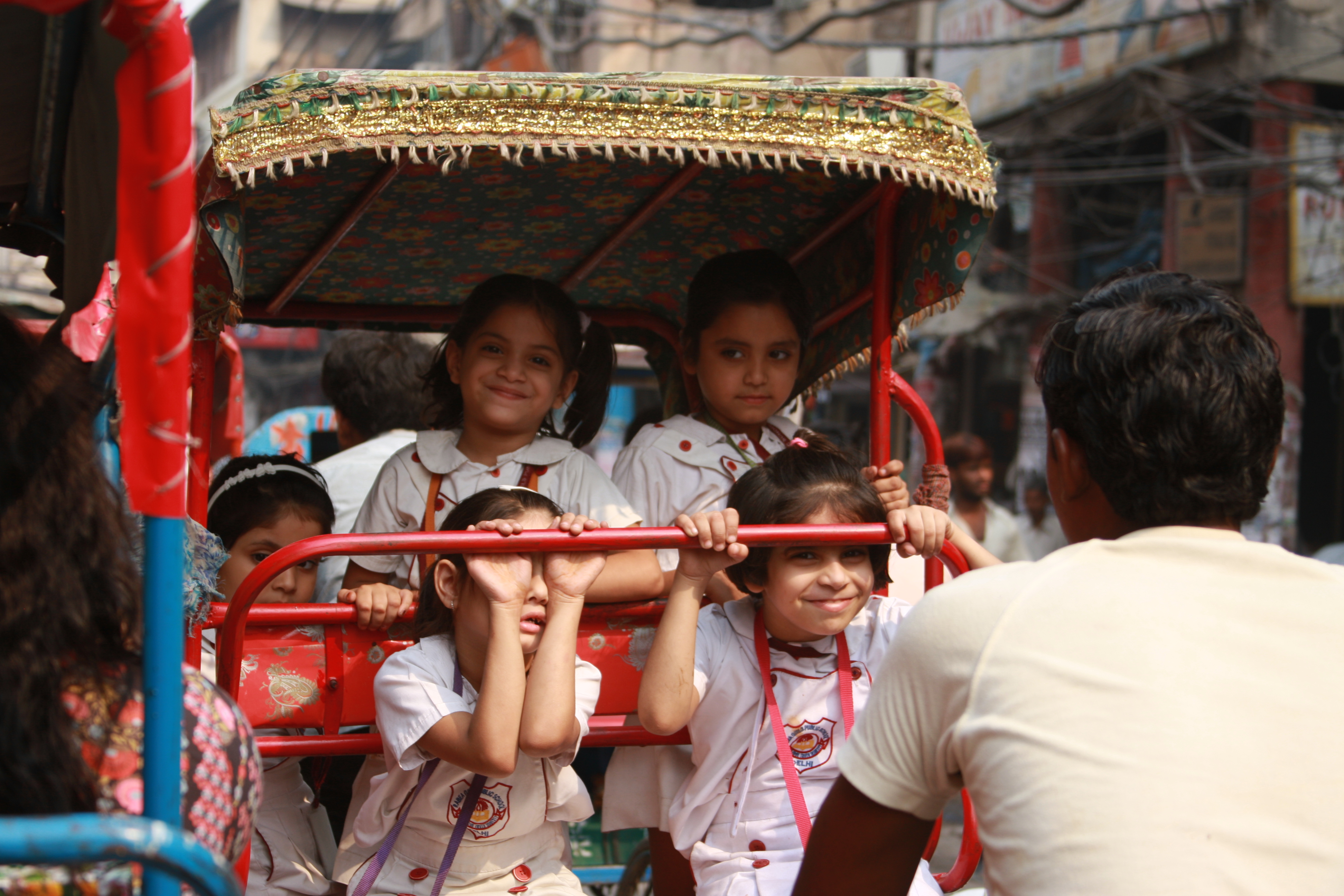I underwent a change of heart as I participated in mission trips. I learned that more isn’t always better.
On my mission trip to Mexico in 2017, we spent time prayer walking around the area. The landscape was overcome by the surrounding poverty: garbage everywhere, tin shacks for homes, and coatings of dirt and rust. But, a missionary cautioned my team, “Don’t feel sorry for them. They look at Americans, who drop their kids off to be taken care of by strangers, and feel sorry for us.”

(dwelling in Mexico)
(feature photo above: buying bracelets in India with all the kids watching me)
The access to hospitals in every city and clean water pouring out of spigots make my life safer, healthier, and definitely easier. But, I looked at interdependent family groups in Mexico, and I’m convinced there are some things about their lives that are better.
Families in Mexico are close-knit communities with extended family members who assist in raising and taking care of the children. How many people do you know who are estranged from family members? How many friends of yours leave their kids in daycare? I’m not saying one way of life is better; I’m saying we need to be cautious before assuming our lives are best in every way.

(hospital in Haiti)
On my mission trip in Haiti, Samaritan’s Purse set up a make-shift hospital. The walls were open 2×4’s wrapped in a blue tarp, which was hammered to each of the studs. The beds were made of plywood with no mattresses of any kind. No bathrooms existed for the patients (cholera is a disease of profuse diarrhea). Instead, each bed had a triangular hole cut in it with a bucket underneath.
Now Samaritan’s Purse did the best they could in a short period of time with limited resources to address the cholera epidemic. I am proud to have volunteered with the organization. But, what surprised me was the reaction of the patients: they felt it was a “real” hospital. They smiled and were gracious for the care they received.

(school bus rickshaw in India)
There wasn’t “hospital food” as we didn’t have the resources. Instead, family members cooked food at home and brought meals to the patients. I watched a wife lovingly feed her husband banana soup from a beat-up stove pan. The couple was happy, and they thanked me.
The United States has the most expensive healthcare system in the world with state of the art hospitals and treatments. Yet, I rarely have patients so thankful for care as I did in Haiti.
So is my life better?

(playing ball in Nicaragua)
In some ways, yes. I don’t wish I lived in a third world country by any means. But, we need to understand that every culture has something to offer for living the best life. Helping people instead of focusing inward challenges us to form our own opinions instead of believing what culture tells us.
Serving others caused a change of heart in me. More isn’t always better.
Heading to Honduras, K.

(church in Ruby, Alaska)


I underwent the same on my first trip to Malawi, Africa. But at the end of the two weeks…. I underwent a reverse culture shock when returning home. So much glitz and glitter and bling! It saddened my heart.
Yes, I agree. It can be very difficult to come back and see everyone focused on material things.
Loved your story. So blessed you can put it all on paper.(e-mail) Keep up the great work.
Thank you!
Thank you for sharing your mission trip thoughts. More is not always better!
I agree! It’s crazy how we live with so much yet consistently think we need more!
My heart beats in time with this line: “We need to understand that every culture has something to offer for living the best life.” WE are the ones who benefit most from a mission trip. WE are the ones with changed lives. Thank you for being a learner, and then for sharing what you’ve learned with us.
During my first trip, I was mistakenly under the assumption that I was going to help others. I couldn’t believe the change I saw in myself. Your words ring true!
Well written. I led students to Swaziland on a mission trip. We visited the government hospital- it was so sad to see seriously sick children with no nurses to help them among many adults who suffered from a lack proper medical care.
Last January I accompanied my former co- pastor to Haiti to work at Double Harvest Missions. We conducted a pastors school on biblical leadership. We visited an orphanage and left our hearts there. Thanks for sharing.